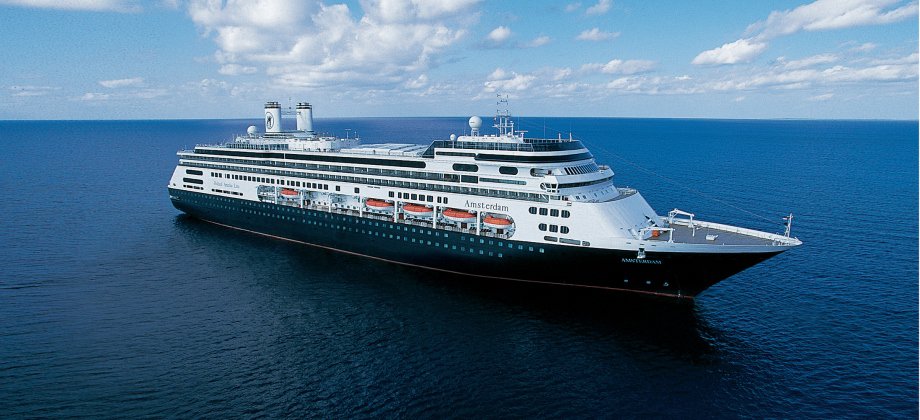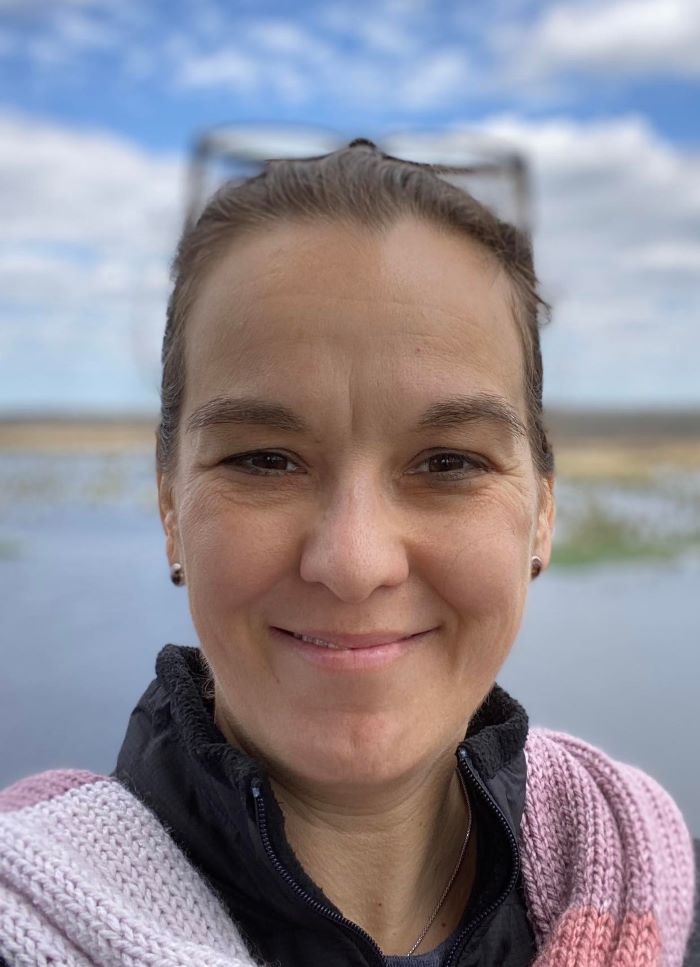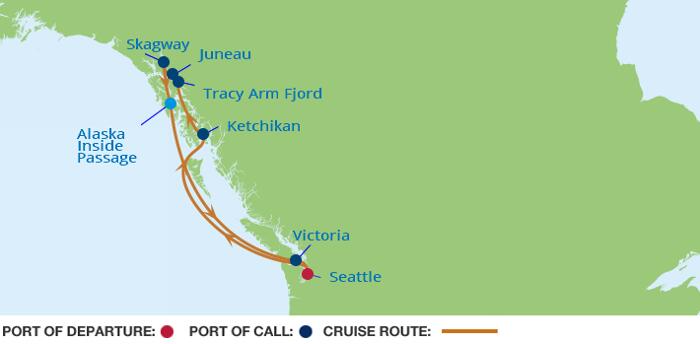800-926-3775
University at Sea®
5700 4th Street NorthSt. Petersburg, FL 33703
E-Mail Us
Office Hours
Monday - Friday
9:00am - 5:00pm EST
Saturday
10:00am - 2:00pm EST

CE Cruncher for Chiropractors
Round-trip Seattle, Washington
July 08 - 15, 2019

$325 for Chiropractors
Anyone who signs up by June 1st, 2018, gets $50.00 off their CE Course fees
Agenda:
| DATES | ROOM | TIMES | PORT OF CALL |
|---|---|---|---|
| July 8, Monday | Departs Seattle, WA at 4:00 PM |
||
| Cocktail party for ALL Attendees | 7:30-8:30 PM | ||
| July 9, Tuesday | Dr. Ken Murkowski Documentation and Coding | 8:00 AM to Noon | At Sea |
| Dr. Ken Murkowski Whiplash Injuries | 1:00 PM- 5:00 PM | ||
| July 10, Wednesday | Ketchikan, Alaska, 8:00 AM to 4:00 PM | ||
| July 11, Thurstay | Fjords 8:00 AM-11:00 AM |
||
| Juneau, Alaska, 2:00 PM -11:00 PM | |||
| July 12, Friday | Skagway, Alaska, 8:00 AM- 5:00 PM | ||
| July 13, Saturday | Dr. Todd Singleton - Thoughts, Traumas and Toxins - A Chiropractic Paradigm | 8:00 AM - Noon; 1:00 PM - 3:00 PM | At Sea |
| Dr. Amy Tirpak - Risk Management for the 21st Century DC | 3:00 PM - 5:00 PM | ||
| July 14, Sunday | Victoria, B.C. 6:00 PM - 11:30 PM |
||
| July 15, Monday | Arrives Seattle at 7:00 AM |
Risk Management for the 21st Century DC
Amy Tirpak, BS, DC
Course Objectives:
The objective of this course is to provide information based on current state and federal laws that will allow the Doctor of Chiropractic to stay in compliance with the rules and regulations of the boards. T opics in the program will provide up-to-date information on risk management, HIPPA, and ethical practices.
What is in a "name". Making sure your name is not misused
- Chiropractor, Doctor of Chiropractic, DC, Chiropractic Physician- understanding what is appropriate.
- Using your practice and/or your personal name in print and outline.
- The alphabet soup of letters after your name: when and how to use terms like 'diplomate, 'degrees,' and 'certifications' properly.
- The laws and regulations regarding publishing patient information and disclosure of patient information.
- Laws governing testimonials and patient information.
- How to legally and ethically respond to online reviews
Whiplash Associated Disorders
Dr. Ken Murkowski
Topics:
- Whiplash
- Not a diagnosis, there are no ICD Codes
- Whiplash is a mechanism with components - ICD Codes
- Whiplash technically is Spinal Concussion - evidence- based information
- 25 Common myths attorneys and insurance companies use against Chiropractors and their patients
- Evidence based information that will allow you to debunk the myths
- Spinal Concussion
- Spinal Concussion - The biomechanics of the spinal regions
- No vehicle damage can still translate into major spinal concussion - VSC and Complications
- A review of the regions of the spine and the impacts of concussion.
- The mechanics of concussion when there is little to no vehicle damage: major concussion, VSC, how the C/L spine can be injured in low speed collisions.
- A review of the UCLA Impact Study: front end, rear end, T-Bone, Collision Mechanisms and Effects
- Advanced Whiplash factors and variable: resulting 200 secondary conditions.
- Diagnostic requirements
- What evidence is required from the MVA patient
- Required spinal concussion exams and tests
- Radiographic studies: what attorneys say
- X-ray mensuration - evidence based
- Penning's X-ray Mensuration: Injury and proof of soft tissue damage.
- Laboratory studies for VSC- i.e. C Reactive Protein
- VSC: 8 physical and Chemical components (ICD Codes)
- Traumatic Injury Considerations
- The etiology of spinal pain, Myofascial trauma, and ligament damage - all evidence based.
- How to prove and document disc related trauma and facet joint injury.
- Activation, Aggravation, and Accelerations- documenting change.
- The complications, residuals and impairments related to neurological trauma
- Skeletal injury, direct nerve damage, vascular damage - VSC
- Spinal care, Rehabilitation, and exercise: documentation is critical.
Thoughts, Traumas and Toxins - A Chiropractic Paradigm
Dr. Todd G. Singleton
Course Purpose: I've compiled the information contained in this seminar to better educate the chiropractic community about the relevance of D.D. Palmer's three "T's" - thoughts, traumas, and toxins – in contemporary chiropractic clinics. A better understanding of these three issues will help chiropractors improve patient outcomes, reduce pain more efficiently, and facilitate healthy changes that last a lifetime.
Course Description: This seminar will begin with an overview of different types of trauma and holistic healing techniques. It will then introduce three sources of exposure to toxins (ingestion, absorption, and inhalation) and discuss herbs that can be used to facilitate detoxification. Finally, the course will explore ways that thoughts and feelings (stress, for example) can help or hinder the body’s natural healing process.
Intended Audience: This seminar has been created specifically for Doctors of Chiropractic.
- Introduction: D.D. Palmer's Three Causes of Subluxation
- D.D. Palmer & "The Chiropractor's Adjuster"1
- Significance of This 1910 Text
- Three Causes of Subluxation
- Trauma
- Toxins
- Thoughts
- Relevance of D.D. Palmer's Theory Today
- Subluxation as More Than Just a Bone Out of Place
- D.D. Palmer & "The Chiropractor's Adjuster"1
- Trauma: A Fresh Look at a Familiar Subject
- Reasons for Injury
- i. Normal Stress vs. Abnormal Stress
- Gradual vs. Sudden Trauma
- Gradual Trauma
- Ergonomics in the Workplace2
- Effects of Different Sleeping Positions3
- Sudden Trauma
- Car Accidents
- Sports Injuries
- Strenuous Exercise
- Gradual Trauma
- The Body's Attempts to Stabilize Subluxation
- Stabilization Through Spasm and Shortening of Muscles
- Holistic Healing from Trauma
- Nutrition and Healing
- Nutritional Deficiencies Delay Recovery4
- Ways to Increase Nutrient Absorption
- Digestive Enzymes5
- Probiotics6
- Ways to Increase Nutrient Absorption
- Proper Nutrition Accelerates Healing
- The Role of the Multivitamin/Mineral
- 2002 Journal of the American Medical Association: Everyone Should Be Taking a Multivitamin7
- Multivitamins aid in the prevention of chronic disease8
- The Role of the Multivitamin/Mineral
- Nutritional Deficiencies Delay Recovery4
- Stress Reduction and Healing
- Getting the Body Out of "Fight-or-Flight" Mode
- Nutrition and Healing
- Trauma and Inflammation
- Why Trauma-Induced Inflammation is Healthy9
- Example: Low Back Injury
- Muscle Spasms Support the Area
- Inflammation Increases Circulation to:
- Remove Toxins and Waste Products
- Increase Nutrient Supply to Tissue
- Example: Low Back Injury
- Why Trauma-Induced Inflammation is Healthy9
- Reasons for Injury
- Toxins: An Overlooked Obstacle to Healing
- Sources of Toxins: Ingestion, Absorption, and Inhalation
- Ingestion of Toxins
- Processed Foods
- Harmful Additives10
- Butylated Hydroxytoluene (BHT)
- Monosodium Glutamate (MSG)
- Sodium Nitrate/Sodium Nitrite
- Tricalcium Phosophate
- Harmful Additives10
- Refined Sugar
- Statistics on Sugar Consumption11
- Inflammation Pathways
- Damage to Coronary Arteries12
- Worsening of Chronic Pain13
- Dehydration of Interstitial Fluid14
- Increased Risk of Injury
- Prolonged Rehabilitation
- Stress on Pancreas
- Increased Risk of Osteoarthritis15
- Artificial Sweeteners
- Inflammation Pathways
- Sweeteners Implicated in Morbidity16
- Aspartame
- Saccharin
- Sucralose
- Refined Vegetable Oils
- Omega-3 to Omega-6 Ratios17
- Increased Risk of Alzheimer’s Disease
- Recent Research on'Diabetes Type III'18
- Common Refined Oils
- Canola
- Peanut
- Soy
- Sunflower
- Dairy Products
- Prevalence of Lactose Intolerance19
- Dairy and Bone Health
- Dairy Consumption and Osteoporosis20
- Better Sources of Bioavailable Calcium
- Harmful Substances Found in Processed Dairy21
- Antibiotic Residues
- Recombinant Bovine Growth Hormone (rBGH)
- Conventional Produce: Pesticides and Herbicides
- Short-Term Health Effects of Acute Exposure22
- Headaches
- Nausea
- Abdominal Cramps
- Trembling
- Mental Confusion
- Long-Term Effects of Low-Level Exposure22
- Cancer
- Reproductive Damage
- Endocrine Disruption
- Short-Term Health Effects of Acute Exposure22
- Processed Foods
- Absorption of Toxins
- Common Toxins in Skincare Products23
- Parabens
- Phthlates
- Triclosan
- Health Effects of These Toxins23
- DNA Damage
- Hormone Imbalance
- Skin Irritation
- Nervous System Disorders
- Effects on the Healing Process24
- Increased Inflammation
- Exacerbated Pain
- Prolonged Recovery
- Natural Alternatives to Conventional Skincare
- Common Toxins in Skincare Products23
- Inhalation of Toxins
- Avoiding Toxins in Work Environment
- Open Windows (in Rural Areas)
- Air Purifier (in Urban Areas)
- Avoiding Toxins at Home
- Household Cleaning Products
- Avoiding Toxins in Work Environment
- Ingestion of Toxins
- Herbs That Aid in Detoxification25
- Red Clover Blossom
- Dandelion Root
- Ginger Root
- Yellow Dock Root
- Sources of Toxins: Ingestion, Absorption, and Inhalation
- Thoughts: Facilitating or Inhibiting the Healing Process
- Physiological Responses to Different Types of Thoughts
- Constructive Thoughts vs. Destructive Thoughts
- The Relationship Between Diet and Mind
- Neural Network in the Gut26
- Mood-Boosting Properties of Vitamin D27
- The Effects of Stress on the Body28
- Negative Thoughts (Fear/Stress) Perceived as Threatening
- Muscles Assume Defensive Positions
- Increased Fat Storage29
- Increased Pain and Inflammation28
- The Importance of Positivity and Purpose
- Studies on Optimism and Longevity30
- Studies on Sense of Purpose and Longevity31
- Protecting Emotional Health Through Lifestyle Choices32
- Natural Ways to Reduce Stress
- Technologies for Brain-Based Learning
- Brainwave Entrainment33,34
- Herbs to Promote Relaxation31
- Technologies for Brain-Based Learning
- Making Your Office a Positive and Uplifting Place
- Find the Right Music
- Build Trust with Your Patients
- Convey Confidence and Calmness
- Listen Attentively
- Train Staff to Be Positive and Supportive
- Rule of Two: Address Each Patient By Name Twice Per Visit
- Physiological Responses to Different Types of Thoughts
- Conclusion: Minding the Three T’s in the Treatment of Pain and Inflammation
- An Anti-Inflammatory Approach to Nutrition
- Elimination of Processed Food
- Focus on Whole, Unprocessed Foods
- Organic Fruits and Vegetables
- Wild-Caught Fish
- Unrefined, Cold-Pressed Oils
- Pain-Reducing Supplementation
- Vitamin D25
- Fish Oil25
- Stress-Reducing Therapies, Treatments, and Technologies
- An Anti-Inflammatory Approach to Nutrition
Todd Singleton, DC
Lighthouse Pain Relief Clinic: Focus of Practice is Nutrition, Neuropathy and Severe Low Back Pain
Doctors Plus, Inc. : Multi-Discipline Physical Medicine Clinic Employing Chiropractors, Medical Doctors, Physical Therapists, Nurse Practitioners, and Physician Assistants
Amy Tirpak, DC

Rick Management, Ethics and Jurisprudence
Dr. Kenneth Murkowski
Our staff can assist you with all your travel arrangements.
We can assist you with all your travel arrangements. We'd be happy to help you plan your flights, hotels or tours before and/or after your cruise conference.
Cruise Itinerary
| DATE | PORT OF CALL | ARRIVE | DEPART |
|---|---|---|---|
| Mon Jul 08 | Seattle, Washington |
12:00 am | 4:00 pm |
| Tue Jul 09 | *At Sea - Cruising |
- | - |
| Wed Jul 10 | Ketchikan, Alaska |
8:00 am | 4:00 pm |
| Thu Jul 11 | Tracy Arm Fjord, Alaska |
8:00 am | 11:00 am |
| Thu Jul 11 | Juneau, Alaska |
2:00 am | 11:00 pm |
| Fri Jul 12 | Skagway, Alaska |
8:00 am | 5:00 pm |
| Sat Jul 13 | *At Sea - Cruising |
- | - |
| Sun Jul 14 | Victoria, British Columbia |
6:00 am | 11:30 pm |
| Mon Jul 15 | Seattle, Washington |
7:00 am | - |

Ports of Call
Seattle, Washington - If you’re a nature lover, this jewel in the Pacific Northwest is the perfect place for you to explore ahead of your cruise vacation. Though it offers plenty of metropolitan delights — think great restaurants, bars, a ton of shopping and lots (and lots) of hip coffee shops — Seattle is a big city with a wild, great-outdoors soul. It’s surrounded by ancient forests, sprawling public parks and, of course, the misty Puget Sound, where you can slow-moving tugboats, sleek kayaks and the occasional pod of whales. Head to Discovery Park for beautiful views of the Olympic and Cascade mountain ranges or visit the Olympic Sculpture Park near Elliott Bay. And if you’re craving a drink and a tasty bite to eat, head to one of Seattle’s many rooftop bars and take advantage of those extra-long northern summer days while you sip local brews and expertly crafted cocktails.
At Sea - Cruising - Cruising
Ketchikan, Alaska - Ketchikan sits at the southern end of Alaska’s Inside Passage— a gateway to the wild landscapes and seascapes of Misty Fjords National Monument. The canned salmon capital of the world, it’s a hub for fishing and outdoor sports. It’s also home to three tribes of Northwest Coast Native Americans, making it a great place to get a taste for the local culture. You’ll see it in the colorful, hand-carved totems that line the city’s streets and parks, and in the unique stilted homes that cling to Deer Mountain’s slopes. If you want to get up close and personal with nature, venture into the Tongass National Forest, the largest in the United States. Or head to Ketchikan Creek Waterfall for amazing views of downtown Ketchikan and a glimpse at the yearly salmon runs.
Tracy Arm Fjord, Alaska - Amidst the pure silence, you'll sail past translucent blue icebergs silhouetted against a most dramatic backdrop of waterfall-laced rock walls ascending thousands of feet into the sky. This classic fjord, Tracy Arm extends over 30 miles and once seen, it is never to be forgotten.
Skagway, Alaska - The tiny town of Skagway still looks like it did during the Klondike Gold Rush over 100 years ago— and today it remains an outpost for thrilling Alaskan adventure. An old-time street car ride along bustling Broadway Street reveals well-preserved buildings, including the state’s oldest hotel. You can see engraved walrus tusks at the Corrington Museum, or get lost in riveting historical reenactments around town. If outdoor adventure is more your thing, there are plenty of ways to amp up the adrenaline, from sledding with Alaskan Huskies on Laughton Glacier to rafting Lynn Canal, the longest fjord in North America.
Victoria, British Columbia - Though Toronto and Vancouver are the more famous Canadian destinations, it’s high time for the sophisticated and beautiful city of Victoria, British Columbia (BC) to have its big moment. The quaint charm and English manners of Victoria will take you back in time to the days of British occupation in the 19th century. Victoria is known as “the garden city” for its lushness and its commitment to keeping the city beautiful. Head to Butchart Garden or Beacon Hill Park to enjoy nature during your time in port.
Of course, a little history lesson is another must while on a cruise to Victoria, BC. Tour the expertly maintained Craigdarroch Castle and the Parliament Buildings, or stop in the Royal BC Museum, a natural history museum dedicated to the history of human settlement in the region. There’s also the Emily Carr House, a museum dedicated to the life and works of the famous painter, Emily Carr. Victoria exudes an intellectualism where art galleries and afternoon tea await you, but so do long bicycle rides along the seafront. Stylish cafes and restaurants are modernizing the city, all while maintaining its signature look: something straight out of a postcard.
Non-Americans/Canadians, please Click Here to determine if you'll need a visa to board this cruise, which visits Canada
Our staff can assist you with all your travel arrangements.
Questions? Call us at 800-422-0711.We can assist you with all your travel arrangements. We'd be happy to help you plan your flights, hotels or tours before and/or after your cruise conference.
Please note that our shore excursions are operated separately and
independently of those offered by the cruise line.

